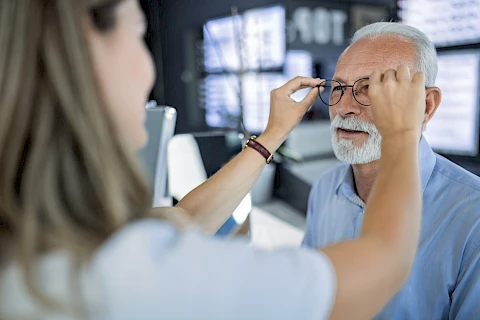
Good vision care is crucial for seniors to enjoy a high quality of life. Many seniors face hurdles in accessing the necessary vision care services. This article helps caregivers understand how to better navigate these challenges, particularly in the Southern New Hampshire area. We'll discuss Medicare coverage, local resources, the importance of regular eye exams, and ways to advocate for seniors' eye health.
What Is Medicare Coverage?
Understanding what Medicare covers can be confusing, especially when it comes to vision care. Medicare primarily focuses on general health care but offers some vision care benefits. While it doesn't cover routine eye exams for glasses or contact lenses, it does include some vision-related services. Medicare Part B covers eye exams if you have a medical condition such as diabetes, which increases your risk for eye disease.
Medicare typically does not cover glasses or contact lenses. However, if you've had cataract surgery and received an intraocular lens, Medicare Part B will help pay for corrective lenses post-surgery. Navigating Medicare can be daunting. Reach out to Medicare or a local Medicare advisor to understand the full scope of your vision care benefits.
Local Resources for Low-Cost or Free Vision Care
Finding affordable vision care can be challenging, but there are local resources available in Southern New Hampshire that can help. Community health clinics often offer low-cost or free medical services, including eye exams and basic glasses. Non-profit organizations like the Lions Club or the New Hampshire Association for the Blind provide vision care services for seniors. They often have programs to help with eye exams and glasses costs. Each city may have specific programs tailored to assist seniors. Check with local senior centers or health departments for more information.
The Importance of Regular Eye Exams
Regular eye exams are needed for early detection and treatment of vision problems. Common issues include cataracts, glaucoma, macular degeneration, and diabetic retinopathy. Early detection through regular exams can help manage these conditions better. Early detection can prevent minor issues from becoming major problems. Timely treatments can enhance vision and, in some cases, restore it. It is recommended that seniors have an eye exam at least once a year. However, those with existing eye conditions or risk factors may need exams more frequently.
How Caregivers Can Advocate for Senior Eye Health
As a caregiver, you help maintain your loved one's eye health. Here's how you can help:
- Watch for signs like frequent squinting, difficulty reading, or bumping into objects. These could indicate vision issues.
- Remind and encourage them to go for their annual eye exams. Regular checks are part of good eye health.
- Help schedule appointments and provide transportation if needed. This ensures they don't miss their eye exams.
- Stay in touch with their eye doctors. Ask questions and be informed about their eye health needs and treatment plans.
We Support Seniors and Their Eye Health
Ensuring that seniors have access to vision care aids in their overall well-being. Understanding Medicare coverage, finding local resources, and prioritizing regular eye exams are vital steps. As caregivers, you can make a significant difference by recognizing signs of vision issues, encouraging check-ups, and assisting with logistics. If you need more help, don't hesitate to contact Senior Helpers Southern New Hampshire. We're here to assist Manchester, Derry, Dover, and Salem families.